The word "bacterium" in many people causes negative emotions, but in fact among them there is a large number of useful for us. They dwell throughout the body, but the largest cluster is in the human intestine. What is the microflora of the intestine, how is the interaction and what can be a violation in the work of bacteria, we find out below.
Bacteria are an integral part of the ecosystem and the human being as a whole. By 99% our body is populated with useful bacteria that participate in all life processes, and only 1% is harmful.
Few people know what bacteria inhabit our intestines, forming its microflora, because their number is large. All of them play a big role in the health and beauty of a person.
The meaning and composition of the intestinal microflora
Proper and healthy work of the intestine, at which the full digestion takes place and the general state of the organism is normalized - is the value of the microflora. Microorganisms participate in the processes:
- absorption of substances (water, minerals and vitamins)
- the formation of immunoglobulin A
- metabolism of lipids, carbohydrates and proteins
- splitting of proteins, as well as bile acids
- neutralization of pathogenic bacteria
thereby performing digestive, protective and synthetic functions.
The intestinal microflora is formed by:
- lactobacilli - live mainly in the small intestine, in the mouth and nasopharynx of a person. Their main role is in the formation of lactic and acetic acid, bactericidal properties (kill pathogenic cells), in stimulating the release of lysozyme, saliva and bile juice, promote digestion and excretion of slags, reduce fatigue and combat depression. Produce lysozyme
- bifidobacteria - lining the large intestine. The main function, like in lactobacilli, is the production of lactic and acetic acid. In addition, bifidobacteria protect the gastrointestinal tract from pathogenic and infectious diseases, ensure normal functioning of the kidneys and liver, strengthen intestinal peristalsis and promote the absorption of vitamins and minerals
- propionobacteria - produce organic acids, have antagonistic properties against pathogenic bacteria, participate in the immune processes of the body
- coliform - performs a protective function, splits lactose, participates in the processes of processing cholesterol, fatty acids, proteins, carbohydrates and assimilates oxygen. The deviation of the norm of its content in the intestines promotes the development of dysbacteriosis and a decrease in immunity.
- enterococci - conditionally pathogenic bacteria that play a role in immunity
- residual microflora (streptococci, fungi, cytrobacter, proteas, etc.) - conditionally pathogenic microorganisms, which account for only 1% of the total microflora. With an increase in their number, harm is inflicted on the body, but at the rate of their maintenance, immunity is maintained
Disturbance of intestinal microflora: symptoms and causes
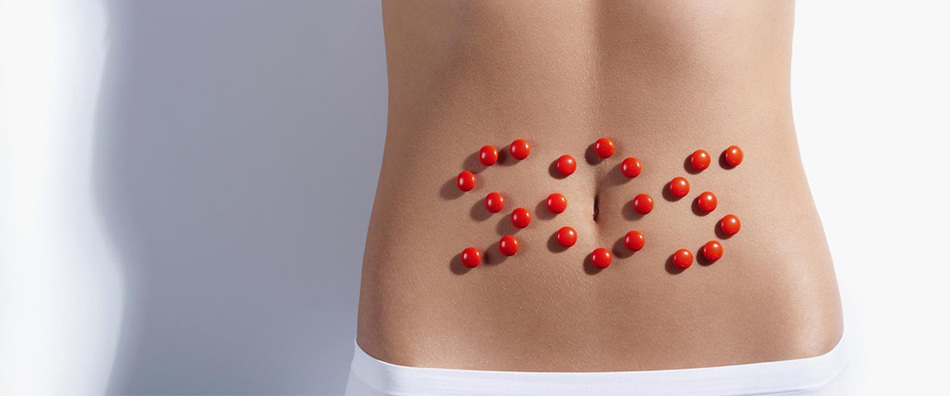
The causes of disturbance of the intestinal microflora can be such factors as:
- reception of antibiotics and antiseptics
- high level of stress
- malnutrition
- abrupt change of diet
- gIT Diseases
- sedentary lifestyle
- hormonal disbalance
- alcohol consumption
- smoking
- environmental factors
Diarrhea, constipation, elevated flatulence, abdominal pain, bad breath, general malaise. The manifestation of allergic reactions, bloating and heaviness are the main symptoms of bowel disturbance.
IMPORTANT: it is possible to diagnose infringement of microflora with accuracy only at delivery of analyzes.
How quickly to normalize the intestinal microflora?
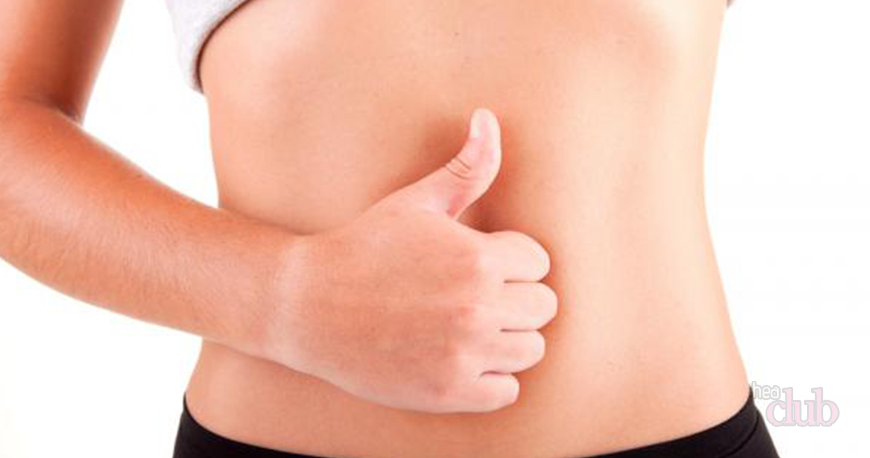
IMPORTANT: to begin restoration of intestinal microflora with revealing of the reasons of infringement of its work.
In order to normalize the intestinal microflora, you must first balance your diet and regimen of the day, thereby increasing immunity.
- Restoration of microflora is based on the intake of preparations containing probiotics and prebiotics. In the first case, it is the colonization of the intestine by ready microorganisms; secondly, the creation of a favorable environment for the reproduction and development of bacteria that live in the intestine
- To normalize the work of the intestine, you need to eat as many fruits and vegetables as possible, rich in fiber and pectin
- A small role in the recovery of microflora is played by the cleansing of the intestine from accumulated slags
IMPORTANT: refuse to eat sweet, flour and meat, replacing it with cereal grains
How to restore the intestinal microflora after taking antibiotics?
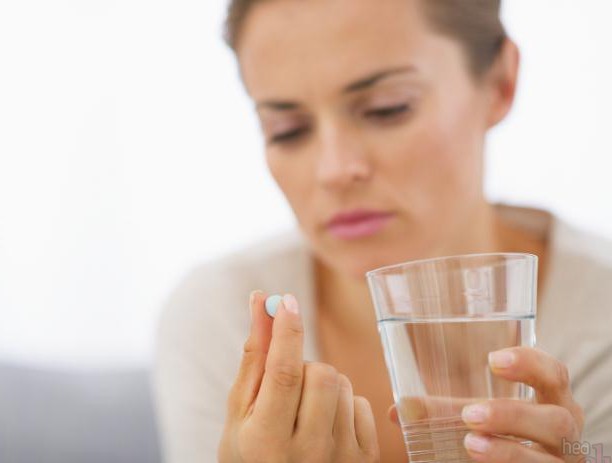
As you know, taking antibiotics completely kills the beneficial microflora of the intestine, so after the course of treatment often develops dysbiosis and other gastrointestinal problems.
- to restore the intestines should use sour-milk products, vegetable soups, cereals and lean meat.
- exclude alcohol
- take special medications that normalize the digestive tract
- use laxatives in a disorder of stools
A good tool for restoring the microflora after taking antibiotics is the folk remedy - braga, but it must be taken carefully. Cooking method means is simple enough: 2 gr. yeast, 1 tbsp. a spoonful of sugar, 1 tbsp. l. honey is dissolved in 0.5 liters. warm boiled water. We insist the mixture in a dark place 2-2,5 hours, then take it in a glass 2 times a day before eating.
IMPORTANT: do not insist on bragging more than 3 hours, because she will acquire the properties of an intoxicating drink, not a medicine.
Tablets, preparations and probiotics for restoration of intestinal microflora
Restoration of impaired intestinal microflora will take at least 10 days. For this, both medications and folk remedies can be used. You should keep a diet without using "heavy" foods and meals.
What drugs can be used to restore the intestinal microflora?
Probiotics: Lineks, Bifiform, Acipol, Hilak, Vitamaks, Lactobacterin and the like.
Prebiotics: Dufalac, Lysozyme, Lactusan, Calcium pantothenate and the like.
Candles: Acylact, Lactonorm Plus, Bifidumbacterin.
Means in the form of a powder: Probifor, Florin Forte, Biobakton.
Products for restoration of intestinal microflora

The basis of the diet includes the use of products such as:
- Garlic, onion, leeks, asparagus, bananas, apples, wheat flour and wheat bran (contribute to the development of an enabling environment for beneficial bacteria)
- Bifidok, Biokefir, Bioiogurt, Bifilife and other dairy products, rich in lactobacilli and bifidobacteria
- Fresh fruits, berries and vegetables (raspberries, cranberries, carrots, black radish, lemon, pomegranate)
IMPORTANT: prepare food for a couple or by cooking, with the least amount of salt added
Herbs for restoration of intestinal microflora
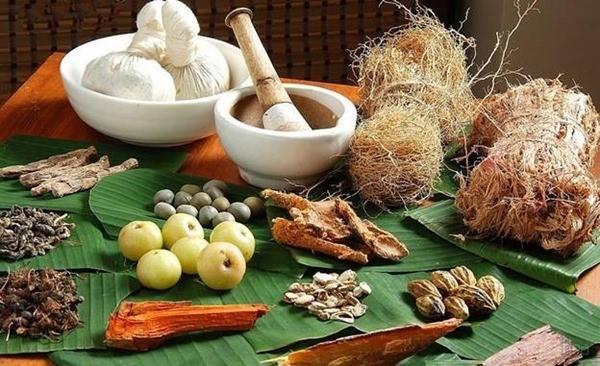
Decoction of mint leaves: 3 tablespoons leaf mint (fresh) soar in 1 tbsp. boiled water. Insist, drain, use 3/4 cup 4 times a day.
Decoction of dill seeds: 4 tsp. seed pour 1 tbsp. boiled water and insist for 2 hours. Drink the broth every 2 hours throughout the day.
Decoction of chamomile: 2 tablespoons Pharmacy chamomile to brew in 200 gr. boiling water. Insist 30 minutes, strain and take 1/4 cup 3 times a day.
How does alcohol affect the intestinal microflora?

On the gastrointestinal tract, as on any human body, alcohol has a negative effect. Ethyl alcohol destroys the cells of the intestinal mucosa, and this leads to inadequate absorption of nutrients and microelements.
The favorable condition of the intestinal microflora is the guarantee of health. If it is violated, it is important to immediately start recovery, in order to prevent the development of more serious diseases.
The intestinal microflora consists of a huge number of non-pathogenic bacteria that participate in the digestion process. They are absolutely safe for humans, but a person can be dangerous to them. Poor nutrition, taking antibiotics and other medicines kill the microflora, disrupting the function of the digestive tract. Also, these bacteria are affected by pathogenic microorganisms that cause bowel diseases. In children, the colonization of the intestine by a normal microflora is completed by 11 years. Therefore, babies are so sensitive to taking antibiotics. Then the doctors prescribe drugs to restore the intestinal microflora.
Restoration of microflora is not as easy as it seems at first glance. Today there are a lot of drugs, in particular probiotics and prebiotics, but they do not always work right away. Why is this happening? Because each drug has its own characteristics and should be given deliberately, by a specialist. The most qualitative will be an appointment based on a bacteriological study of feces.
Recommendation: The quality of production of preparations is extremely important. If you are looking for a good probiotic, you should not save, because here you will pay not only for the brand, but also for observing the conditions of production and storage, as well as the effectiveness confirmed by multiple studies.
Indications for the appointment of drugs that restore flora
In what situations can a doctor prescribe prebiotics? The most frequent situation is the maintenance of microflora during or after taking antibiotics. Also, drugs are indicated for dysbacteriosis, skin diseases, pathology of baking, some diseases of the stomach and intestines, poisoning.
Normal and pathogenic flora of the intestine, which indicates a dysbiosis
What symptoms indicate the need to take funds to normalize the intestinal microflora? The manifestations of dysbiosis are as follows:
- Stool disorders (diarrhea, possibly alternating with constipation);
- Increased gas formation;
- Periodic discomfort and abdominal pain;
- Rashes on the skin, brittle hair and nails.
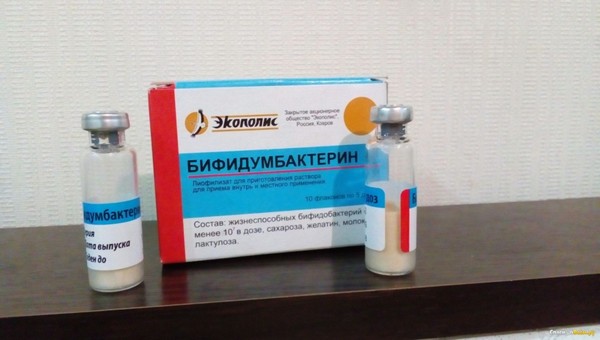
Bifidumbacterin dry - glass vials with a suspension of dried bacteria
Lactobacterin
This drug, containing lactobacilli, is released in the form of powder and candles. The agent is applied in a wide range of pathologies, including the disturbance of microflora in newborns. The drug is absolutely safe, but it is prescribed only in cases when the microflora of the baby really needs help from the outside.
Lineks
Linex is a common and effective medicinal product containing all the main representatives of the intestinal microflora. The drug is used for adults and children of any age. Produced in the form of powder and capsules (Linex Forte). If used correctly, the drug does not cause side effects and complications. Dose and course of admission are determined by a specialist depending on the disease, so how to normalize the intestinal microflora will prompt a specialist.
What are prebiotics?
According to the classification of the World Health Organization, prebiotics include substances that are not absorbed in the intestine and do not contain bacteria, but stimulate the growth of good microflora and create favorable conditions for its existence. Prebiotics are found in food, dietary supplements and medicines.
With food, prebiotics enter the body together with oatmeal, bran, yoghurt, bananas, onions, garlic and other foods. In general, with a balanced diet with the use of meat, fish, vegetables, fruits and cereals, the body gets enough prebiotics, so for prevention, these drugs are not recommended.
Among the drugs for prebiotics include Hilak Forte, Normaise, Dufalac, and others. Prebiotics in dietary supplements are a controversial issue, because the effectiveness of dietary supplements is not proven, and they are not registered preparations for intestinal microflora.
Hilak Forte
This remedy restores acidity in the intestines, promoting the growth of useful microflora. The drug has its effect only in the lumen of the intestine, it is not absorbed into the blood and does not affect the internal organs. The medicine is shown to be used from birth, if there are indications. The drug is allowed during pregnancy. Produced in drops in bottles of 30 ml and 100 ml.
Norma
The active substance - lactulose - is one of the main prebiotics. This drug not only increases the number of beneficial microorganisms, but also improves intestinal motility, due to which it effectively fights with constipation. Produced in the form of syrup in glass bottles of 200ml. Norma is an absolutely safe medicine - as prescribed by the doctor, it can be used by pregnant women and children up to a year (according to a special scheme).
By microflora we mean a set of different microorganisms in the broad sense of this concept. In fact, intestinal microflora - a set of microorganisms that are specific to a particular organism, which exist in close relationship with each other. However, not all 500 bacteria living in the intestine are useful. Useful bacteria help a person digest food, absorb vitamins and proteins, harmful bacteria feed on fermentation products and produce rotting products. The importance of intestinal microflora can be compared with the work of the kidneys and liver combined.
Composition of intestinal microflora
Typical representatives of normal microflora are bifidobacteria, lactobacilli, bacteriosis, enterococci and Escherichia coli, which constitute 99% of all microorganisms that inhabit the intestine. However, 1% of the total number of microbes are conditionally pathogenic bacteria, such as staphylococci, clostridia, Pseudomonas aeruginosa, Proteus, and others. With a healthy intestine, there is no pathogenic microflora.
The development of the intestinal microflora in humans begins already at the time of delivery and ends only by 7-13 years.
The importance of intestinal microflora
Normal microflora is very important for human health, as it ensures the harmonious work of the whole organism. Most microflora bacteria secrete alcohols, acids and antibacterial lysozyme, so that the development of putrefactive bacteria does not occur in the intestine. Moreover, beneficial bacteria neutralize the release of toxins by pathogenic bacteria.
The activity of useful microorganisms is aimed at ensuring the process of absorption of substances, the exchange of lipids, the decomposition of bile acids and proteins. That is, without normal microflora, good digestion is impossible.
With a healthy microflora, immunoglobulin A is formed, which is important for maintaining immunity.
It is important to know that the imbalance of microorganisms in the intestine is the cause of premature aging of the organism, since toxins released by putrefactive bacteria poison the body.
Infringement of intestinal microflora
Disturbance of microflora occurs with a quantitative or qualitative change in the composition of the microflora, which often happens with malnutrition. Such violations are called dysbiosis.
Causes of bowel microflora disorders
The microflora can be disrupted with prolonged intake of antiseptics or antibiotics, because according to statistics, dysbacteriosis in 90% of cases accompanies antimicrobial therapy.
Often, the violation of microflora occurs due to the cleansing of the intestine, when not only pathogenic, but also beneficial microorganisms are destroyed.
Disrupt the microflora, and with excessive cleanliness, abusing antibacterial means of hygiene, when also destroy useful bacteria.
With reduced immunity, there is also a disturbance of normal intestinal microflora, which can result from infectious diseases, hormone therapy, inflammatory processes, allergic reactions, radiation therapy, etc.
Hormonal failures in the body can also trigger dysbiosis.
Stress, nervous system diseases, lack of sleep, abuse of coffee and energy drinks can lead to disturbance of microflora. Bad ecology, unbalanced nutrition and poor quality of drinking water are also considered a provoker of dysbiosis.
Symptoms of intestinal microflora disorders
Signs of imbalance in the intestinal microflora are changes in the nature of the stool, diarrhea, increased flatulence, rumbling, constipation, cutaneous or other allergic reactions. Dysbiosis is characterized by general malaise, which is accompanied by pain in the abdomen, as well as increased fatigue and depressive conditions.
How to restore intestinal microflora
It is important to understand that the most frequent cause of microflora disorders are diseases of the gastrointestinal tract. Therefore, first you need to determine the cause of dysbiosis, and only then start its treatment.
To restore the intestinal microflora it is necessary to apply prebiotics and probiotics . Probiotics contain living cells of microorganisms. And prebiotics in fact serve as a breeding ground for the growth and development of these beneficial bacteria. The maximum effect can be achieved with the simultaneous use of prebiotics and probiotics, for example, taking a drug in Bifiform capsules. Bifiform capsules contain useful microflora, and a special nutrient medium for the propagation of beneficial bacteria. The drug normalizes the microflora and activates the internal defense of the body against pathogenic microbes, eliminating intestinal dysbiosis, this remedy increases immunity.
Quickly restore the normal microflora and can with the help of drops "Hilak forte", which contribute to the purification of intestinal flora and restore the normal pH of the stomach.
Prebiotics as a means of prevention
It is useful to know that prebiotics are a natural natural remedy that increases immunity, making them a valuable means of preventing colds, which is especially important on the eve of the oncoming season of colds.
Prebiotics are food components that are not absorbed by the intestines, but which activate the activity and growth of a healthy microflora. The maximum quantity of prebiotics is found in the root of chicory, Jerusalem artichoke, dandelion greens, they are also abundant in fresh garlic, leek, onion (both cheese and boiled), there are prebiotics in fresh asparagus, wheat bran, wheat flour and bananas .
Normalization of intestinal microflora
To restore the number of normal bacteria you need to eat foods rich in fiber and pectins: cereals, fruits and vegetables. Sour-milk products are very useful for creating a healthy microflora. The ingestion of lactic acid bacteria plays a huge positive role, as these microorganisms suppress the putrefactive environment, restoring the balance of bacteria in the intestine.
Normalizing the intestinal microflora, you should immediately limit the consumption of sweet, flour and meat. Useful cereal grains, coarse bread, which will help normalize the stool, restore activity to the muscles of the intestine and restore the function of the mucosal membrane.
In the process of normalization of the intestinal microflora, it is recommended to eat a clove of garlic one hour before meals in the morning and in the evening.
To restore intestinal microflora should give up sleeping pills and hormones, energy drinks, which are stress for the body.
Sour-milk products for normalization of microflora
"Acidobilin", "Bifilife", "Bifidok", "Biokefir", "Biosmetana", "Bioiogurt" and the like sour-milk products enriched with lactobacilli and bifidobacteria, beneficial effect on the intestinal microflora, relieving dysbiosis, strengthening immunity and normalizing gastrointestinal activity intestinal tract. These products include prebiotics and prebiotics.
The bifidobacteria present in the products do not allow developing pathogenic and putrefactive microbes, they help digest carbohydrates and form vitamin K and B vitamins.
Thanks to lactobacilli, lactose and other carbohydrates are converted to lactic acid, preventing the development of fungi and pathogens.
For example, in the fermented milk product "Bifilife" contains all 5 types of bifidobacteria, characteristic of a healthy body. Providing a powerful strengthening and improving effect, these bacteria also synthesize vitamins (including vitamins C, B1, B2, B6, B12), normalize the exchange of fats, regulating the level of cholesterol in the blood.
Regardless of your chosen method of treatment of dysbacteriosis, if the improvement does not occur within 24 hours, you need to see a doctor, since the consequences of dysbiosis can be very serious.
Romanchukevich Tatiana
for women's magazine site
When using and reprinting the material, an active link to the online women's magazine is required
A healthy intestine is the basis of a person's normal life. In the womb of the mother, the intestine remains sterile, and immediately after birth and by applying to the breast, the intestine is populated with beneficial bacteria that support its healthy microflora. With the course of life, useful bacteria can be suppressed by pathogenic microbes or killed by potent drugs. If the microflora is not restored, this leads to serious abnormalities in the digestive tract.
How to understand that the microflora is broken
Here are some symptoms of dysbiosis, which can occur as a result of a violation of a healthy intestinal microflora.
- The first thing a person feels is discomfort in the abdomen. There is rumbling, turbulence, flatulence and increased gas formation.
- Often suppression of beneficial bacteria leads to disturbances with stools. Moreover, a person may have constipation as well as diarrhea.
- If the intestine has lost its ability to work, it affects the entire body. This is especially noticeable on the skin of a person. On the face are small pimples, black dots, the skin as a whole becomes quite problematic.
- Since the intestine does not work properly, the immunity of a person worsens. He begins to suffer more often colds, he has allergic reactions.
- In case of disruption of the intestine, the person as a whole feels depressed - apathy, fatigue, drowsiness, headache often occurs, the patient's condition is depressive.
- Due to inadequate absorption of nutrients, the condition of the hair and nails deteriorates. Strands become dry and brittle, often fall out. Nails turn into thin and fragile plates.
- Often because of poor work of the intestine, an unpleasant odor from the mouth appears in the person, which does not disappear even after active cleaning of the teeth.
- Poor appetite is another symptom of impaired intestinal microflora.
- At a serious stage of dysbiosis, a person may experience nausea and an unpleasant taste in the mouth.
Noticing such symptoms, few associate them with a violation of the intestine. Many write off this for vitamin deficiency, poisoning, gastritis or other gastrointestinal diseases. Nevertheless, it is necessary to restore the microflora as soon as possible. But what could cause such a state of the intestine?
Why is a healthy microflora disturbed?
In the human intestine, more than a billion bacteria live that help synthesize amino acids, participate in the metabolism of bilirubin and fatty acids, stimulate the intestinal perelstatics, promote the elimination of toxins and participate in the assimilation of calcium. What should this happen to the body so that the whole multibillion colony will perish? There are many reasons for this.
- The most frequent and common cause is the use of antibiotics. In bacterial infections, the doctor prescribes drugs that can kill pathogens. Together with harmful microbes, a healthy microflora is also suppressed. That is why, together with antibiotics (or after their administration), the doctor must prescribe probiotics, which restore the colony of beneficial bacteria.
- In the intestine in addition to beneficial bacteria can be pathogenic. They appear there together with stale or poisoned food. If harmful bacteria becomes many, they begin to suppress healthy microflora. Therefore, food poisoning is another common cause of intestinal microflora disorders.
- Dysbacteriosis can occur with malnutrition. Overeating, fasting, hard diets, a lot of harmful food can lead to disruption of the bowels.
- Dysbacteriosis is often a consequence of other diseases - gastritis, cholecystitis, various surgical interventions in the gastrointestinal tract.
- Various "cleansing", and especially frequent cleansing enemas, too, lead to the washing out of healthy intestinal microflora. That is why babies, who are prone to constipation, are not recommended to often make an enema, it is better to use a glycerin candle and pay attention to the root of the problem.
- Often, dysbiosis occurs against a background of reduced immunity due to hormonal drugs, after radiation therapy and infectious diseases.
- Disturbances in a healthy microflora can be a consequence of stress, nervous shocks, lack of sleep, and poor quality of drinking water.
It is very important to identify the true cause of dysbiosis to prevent its recurrence.
How to restore a colony of beneficial bacteria
The first thing that should be paid attention to in dysbacteriosis is the beneficial bacteria that need to colonize the affected intestine. The pharmacies have a wide selection of probiotics, bifido- and lactobacilli, which can help you in this situation. Some of them contain only one kind of bacteria (for example, Bifidumbacterin or Lactobacterin), others include a complex of useful microorganisms (Bifolong, Atzilact). Some medicines, in addition to bacteria, have sorbents in their composition that absorb toxins and toxins, which is important for poisoning. Among them are Bifidubacterin Forte, Probifor, Bifikol Forte.
If the poisoning is caused by pathogenic microorganisms, there are preparations that not only colonize the intestines with useful bacteria, but also block the development and multiplication of pathogens - this is Enterol, Biosporin.
Among the most popular, effective and popular drugs for the restoration of healthy intestinal microflora can be called Lineks, Acipol, Hilak Forte, Entererozermina and others. Pay attention to the fact that there are adult and children's forms of drugs.
When treating the body against dysbiosis, it is very important to pay attention to the way the drug is stored. The fact is that the beneficial bacteria in the drug are really alive. And in order for the drug to remain effective, it can not be heated, it should be stored in the refrigerator. Drinking probiotics is necessary separately from food, otherwise the effectiveness of treatment is reduced. Take a dose of the medicine half an hour before meals or an hour after eating. Dilute powder should be in warm water, not in any case in hot (otherwise bacteria will die). These simple rules will help you restore a healthy microflora quickly and effectively.
Nutrition in the treatment of many diseases of the digestive tract plays a key role. And dysbiosis is no exception. Proper nutrition can accelerate recovery, and the reception of harmful food can reduce all diligence to naught. Here are some rules that you need to adhere to when violating a healthy intestinal microflora.
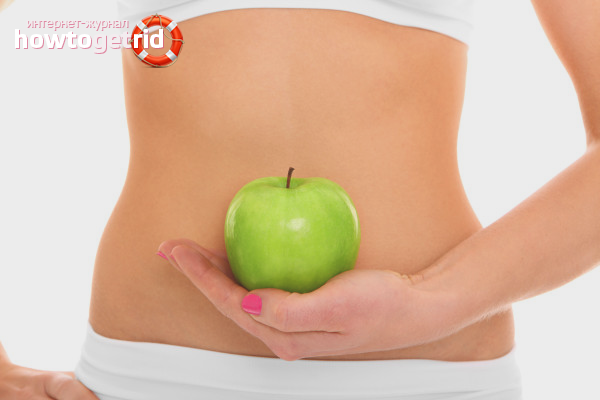
- When dysbiosis should unload your intestines - there is a need in small portions, but often, eat light foods - porridge, soups, mashed potatoes, do not gorge for night.
- In order not to provoke fermentation in the stomach, you can not drink water with water, do not use white bread, legumes, cabbage and apples.
- Discard semi-finished products, preservatives, flavors and artificial additives. In the diet should be cereals, fresh vegetables and fruits, lean and light meat.
- Do not use fresh milk. But the sour-milk products will help you colonize the intestines with useful bacteria. You should try to drink as much kefir, yogurt, ryazhenka and yogurt. It is much more useful to use sour-milk products with names in which there is a prefix "Bio".
- Some products help colon colonization with beneficial bacteria. It's asparagus, tomato, garlic. They should be eaten fresh.
- When poisoning is worth eating more cereals - lentils, rice, buckwheat, oatmeal, pearl barley. They contain a lot of fiber, which sucks in harmful toxins and takes them out naturally. When diarrhea is very good rice - it has "fixing" properties.
- If you are poisoned, it is very important to drink plenty of fluids to remove toxins and prevent dehydration. Drink compotes, juices, pure mineral code, jelly.
Adhering to these simple rules, you can reduce the symptoms of dysbiosis and speed up the recovery process.
Folk remedies for healthy intestinal microflora
There are many home prescriptions against dysbiosis and poisoning. Let's consider the most effective of them.
- Garlic and yogurt. Both of these products perfectly affect the functioning of the intestine. Crush and grind two cloves of garlic and mix them with a glass of kefir. Drink a prepared product for a couple of hours before bedtime. The taste of such a drug, of course, is not impressive, but there is a lot of benefit!
- Chamomile, St. John's wort, lemon balm and flax seeds. Prepare from these plants a useful collection, mixing them in equal proportions. A couple tablespoons of the resulting collection should be filled with a liter of boiling water and leave for a couple of hours. Drink half a glass 3-4 times a day. Chamomile soothes mucous, calendula suppresses pathogenic microflora, flax seeds promote the proliferation of beneficial bacteria, melissa removes toxins. This is a good collection for various malfunctions in the intestine.
- Mint, and seeds of dill. This broth will help you if the dysbacteriosis is accompanied by flatulence, bloating and increased gas production. Mix seeds and mint in equal proportions and pour boiling water. When the broth is sufficiently infused, it can be drunk instead of tea.
- Home braga. To ensure that many healthy bacteria have settled in the intestine, they need to be taken from somewhere. To do this, we will prepare a homemade bug from honey and sugar. A couple of spoons of natural honey should be mixed with the same amount of sugar, add 5 grams of yeast. Pour 3 liters of water and leave in a warm place for fermentation. In a few hours, bubbles will go - it means that the mixture began to wander. Drink a useful composition of two glasses a day.
- Infusion of elecampane. This remedy will be useful if the food is not digested, there is discomfort and heaviness in the abdomen. Devyasil should be crushed and poured with alcohol. Infuse 2 weeks in a dark and cool place. Drink a tablespoon 10 minutes before each meal.
These are very cheap and easy-to-prepare recipes that will really help you get rid of the discomfort in the digestive tract.
If home treatment is unsuccessful, do not delay - consult a gastroenterologist. After all, a healthy bowel is a good state of health, strong immunity, clean skin and protection against allergies. Be attentive to your body - keep an eye on the state of the intestine!
Video: how to restore intestinal flora and immunity
Useful preparations, products and herbs for intestinal microflora
The word "bacterium" in many people causes negative emotions, but in fact among them there is a large number of useful for us. They dwell throughout the body, but the largest cluster is in the human intestine. What is the microflora of the intestine, how is the interaction and what can be a violation in the work of bacteria, we find out below.
Bacteria are an integral part of the ecosystem and the human being as a whole. By 99% our body is populated with useful bacteria that participate in all life processes, and only 1% is harmful.
Few people know what bacteria inhabit our intestines, forming its microflora, because their number is large. All of them play a big role in the health and beauty of a person.
The meaning and composition of the intestinal microflora
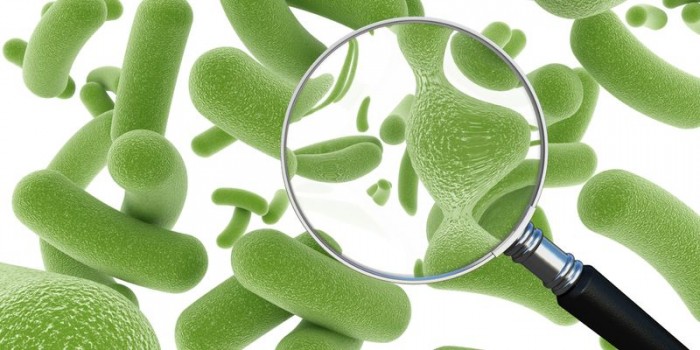
The correct and healthy work of the intestines, at which the
full digestion and normalize the general condition of the body -
and is the value of microflora. Microorganisms participate in
processes:
- absorption of substances (water, minerals and vitamins)
- the formation of immunoglobulin A
- metabolism of lipids, carbohydrates and proteins
- splitting of proteins, as well as bile acids
- neutralization of pathogenic bacteria
thereby performing digestive, protective and synthetic
function.
The intestinal microflora is formed by:
- lactobacilli - live mainly in
small intestine, in the mouth and nasopharynx of a person. Their main role
consists in the formation of lactic and acetic acid,
bactericidal properties (kill pathogenic cells), in
stimulation of lysozyme, saliva and bile juice,
promote digestion and elimination of toxins, reduce fatigue and
struggle with depression. Produce lysozyme - bifidobacteria - lining the large intestine.
The main functions, like in lactobacilli, are the production of dairy and
acetic acid. In addition, bifidobacteria protect
gastrointestinal tract from pathogenic and infectious
diseases, ensures normal functioning of the kidneys and liver,
enhances intestinal motility and promotes absorption
vitamins and minerals - propionobacteria - produce organic
acids, possess antagonistic properties in relation to
pathogenic bacteria, participate in the immune processes of the body - coliform - performs a protective function,
splits lactose, participates in the processes of cholesterol processing,
fatty acids, proteins, carbohydrates and assimilates oxygen.
The deviation of the norm of its content in the intestine promotes the development
dysbacteriosis and decreased immunity. - enterococci - conditionally pathogenic bacteria,
which play a role in immunity - residual microflora (streptococci, fungi,
cytobacter, proteas, etc.) - conditionally pathogenic
Microorganisms, which account for only 1% of the entire microflora.
With an increase in their number, damage is done to the body, but at the rate of their
maintenance - immunity is maintained
Disturbance of intestinal microflora: symptoms and causes
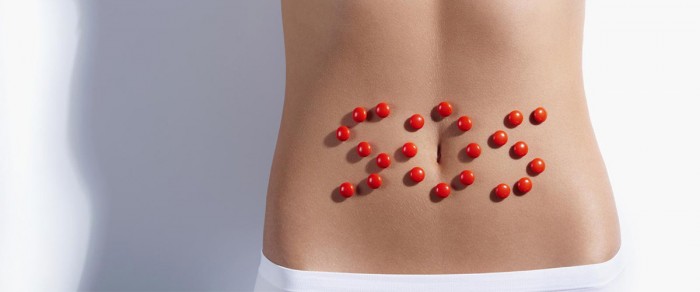
The causes of disturbance of the intestinal microflora can be such
factors like:
Diarrhea, constipation, increased flatulence, abdominal pain, unpleasant
smell from the mouth, general malaise. The manifestation of allergic reactions,
Bloating and heaviness are the main symptoms of disruption of work
intestines.
IMPORTANT: it is possible to diagnose infringement of microflora with accuracy only at delivery of analyzes.
How quickly to normalize the intestinal microflora?
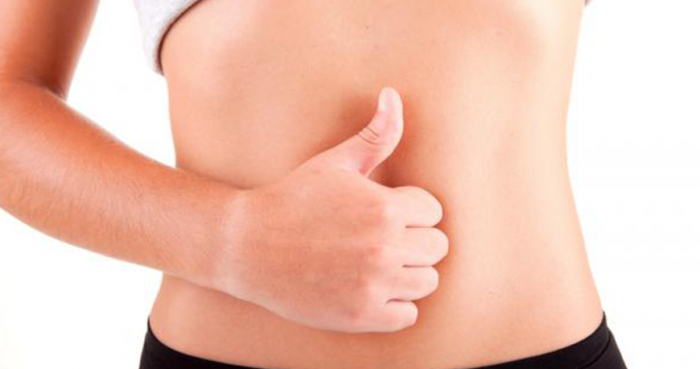
IMPORTANT: to begin restoration of intestinal microflora with revealing
reasons for the violation of his work.
In order to normalize the intestinal microflora originally
you need to balance your diet and daily routine, thereby increasing
immunity.
containing probiotics and prebiotics. In the first case, this is the population
intestines with ready-made micro-organisms;
favorable environment for reproduction and development of bacteria living
in the intestine
more vegetables and fruits, rich in fiber and pectin
intestines from accumulated slags
IMPORTANT: refuse to eat sweet, flour and meat,
replacing it with cereal grains
How to restore intestinal microflora after taking
antibiotics?
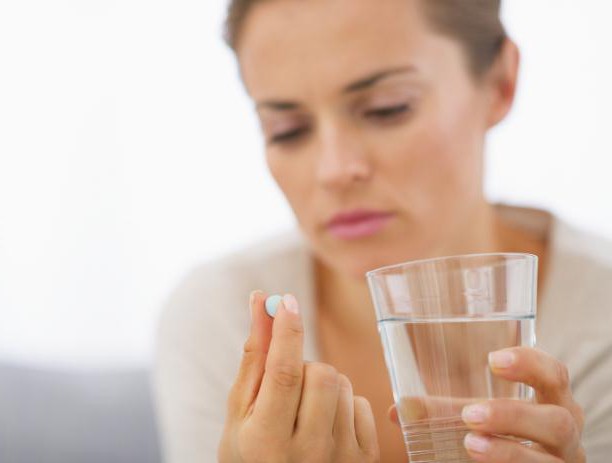
As you know, taking antibiotics completely kills useful
microflora of the intestine, so after treatment often
develops dysbacteriosis and other gastrointestinal problems.
sour-milk products, vegetable soups, cereals and lean meat.
GIT function
IMPORTANT: during taking antibiotics it is recommended to take
means that promote the best digestion of food (Mezim,
Festal, etc.)
A good way to restore microflora after taking
antibiotics is a folk remedy - braga, but take it
you need to be careful.
Method of preparation
simple enough: 2 gr. yeast, 1 tbsp. a spoonful of sugar, 1 tbsp. l. honey
is dissolved in 0.5 l. warm boiled water. We insist the mixture in
a dark place 2-2, 5 hours, after which it should be taken by a glass
2 times a day before meals.
IMPORTANT: do not insist on bragging more than 3 hours, because it will acquire
properties of intoxicating drink, not medicines.
Tablets, preparations and probiotics for the restoration of microflora
intestines
Restoration of impaired intestinal microflora will take at least 10 days. For this can be used as a medicament
means, and national. It is necessary to keep a diet without eating
"Heavy" foods and meals.
What drugs can be used to restore microflora
intestines?
Probiotics: Lineks, Bifiform, Acipol, Hilak,
Vitamax, Lactobacterin, and the like.
Prebiotics: Dufalac, Lizotzim, Laktusan,
Calcium pantothenate and the like.
Candles: Acylact, Lactonorm Plus,
Bifidumbacterin.
Means in the form of a powder: Probifor, Florin
Forte, Biobakton.
Products for restoration of intestinal microflora

The basis of the diet includes the use of such products,
as:
wheat flour and wheat bran (contribute to the development of
favorable environment for beneficial bacteria)
products rich in lactobacilli and bifidobacteria
black, lemon, pomegranate)
IMPORTANT: prepare food for a couple or by cooking, with
the least amount of added salt
Herbs for restoration of intestinal microflora
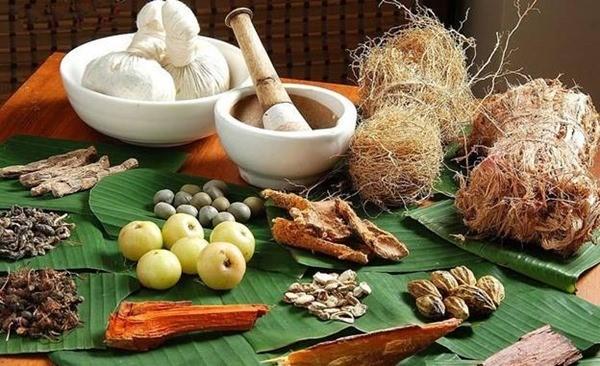
Decoction of mint leaves: 3 tablespoons mint leaves
(fresh) soar in 1 tbsp. boiled water. Insist, drain,
use 3/4 cup 4 times a day.
Decoction of dill seeds: 4 tsp. seed pour 1
Art. boiled water and insist for 2 hours. To drink broth
every 2 hours throughout the day.
Decoction of chamomile: 2 tablespoons pharmacy chamomile
brew in 200 gr. boiling water. Insist for 30 minutes, strain and
take 1/4 cup 3 times a day.
How does alcohol affect the intestinal microflora?

On the gastrointestinal tract, as on any human organ,
alcohol has a negative impact. Ethyl alcohol destroys
cells of the mucous layer of the intestine, and this leads to a defective
absorption of nutrients and microelements.
The favorable condition of the intestinal microflora is the guarantee of health.
If it is violated, it is important to immediately restore,
to prevent the development of more serious diseases.

